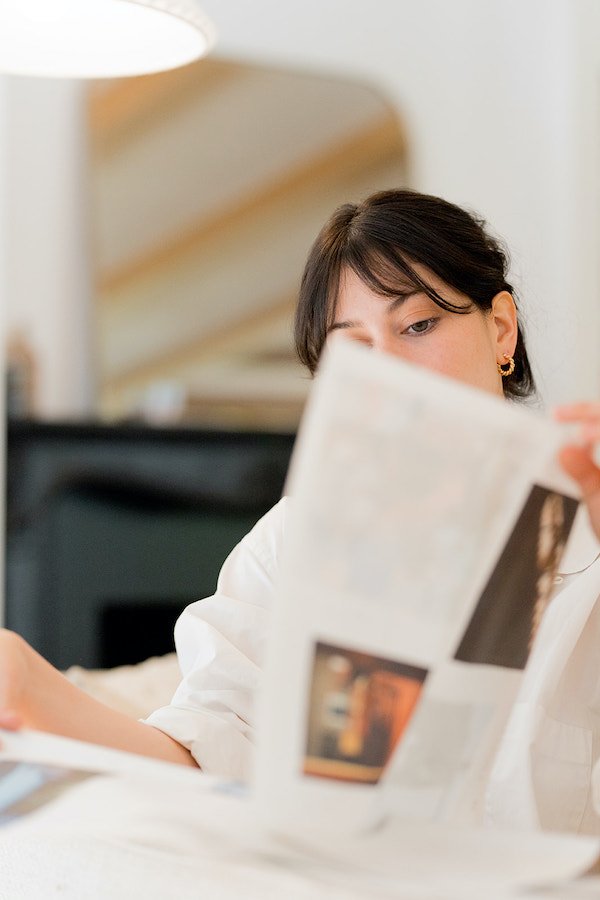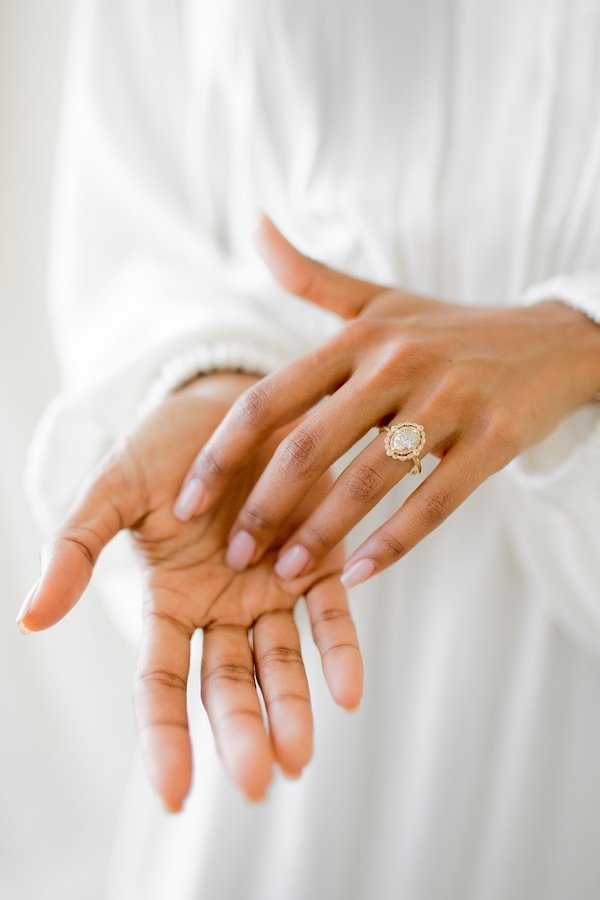
I Just Need To Stop Saying “Just”…Right?
“I just—I mean—I think…”
I open my text messages, head to the search bar, and type in just. There are thousands upon thousands of instances that pop up.
“I just wanted to ask for advice if you were free for a second!”
“I just need some downtime.”
“I’m just thinking about my bed.” (Aren’t we all?)
“I can’t help but wonder if I’m overusing qualifiers—and undermining myself in the process.”
I do the same with my inbox but stop after the 500th mention. I look up similar verbiage: I mean, I think, or the compound I mean I think peppered into every conversation. Yet the point is already clear. I rely on qualifiers a lot.
Sometimes, I worry I’ve upset or intimidated someone with a request, so I’ll add on a just checking in or no worries if not. Other times, I use fillers as a touch of warmth, levity, or reassurance.
But because just can mean many things, like only now or definitely or merely, I can’t help but wonder if I’m overusing it—and undermining myself in the process.
The Power (Or Lack Thereof?) Of Filler Words
I tried to pinpoint when exactly filler words became part of my everyday vocabulary, but it was nearly impossible to do. In today’s society, this softer language is ingrained in women at an early age, similar to emoji pleasantries and exclamation points in emails. So perhaps it’s less a question of “when did it start?” and more “when did I notice?”
I’d say 2015, when #GirlBoss op-eds flooded the mainstream, sharing how many professional women began refusing to use just in emails. Executives dissected how just self-sabotages women’s credibility, minimizing what we really mean and even proactively apologizing with these qualifiers. Is anyone surprised?
In a “man’s world,” we constantly live with the fear of being perceived as a nag or a bitch—so we’re conditioned to use more expressive, gentler, “ladylike” language. It’s no surprise or even accident that we’re taught this way, prioritizing politeness and likability over our own needs. To that extent, it is worth re-examining how I use these fillers and how my needs are addressed.
“We are misperceived no matter what we do with the same end result: Our styles of communication are still considered inferior to men’s.”
But for every woman who’s successfully removed just from her vocabulary, particularly in the workplace, there are dozens of others who’ve been seen as too abrasive, direct, or over-confident. It’s a lose, lose. An unsurprising effect of the patriarchy.
No matter what we do, women are misperceived—either too passive or too aggressive—with the same end result: Our styles of communication are still considered inferior to men’s. Yet our language isn’t the “problem”—it’s a distraction from the real issue.
Addressing What I Really Mean
The actual problem? The infinite catch-22 women are trapped in: We’re encouraged to remain small in spaces that were never designed with us in mind, and then we’re policed for the way we adapt. We’re told to “man up”, even from fellow women, and to be more direct.
Perhaps it’s time to re-evaluate communication as a whole instead of seeing our language as the issue. Who decided that one particular way was the right way? Should it still be?
I, for one, am of the belief that whatever language women want to use, we should. Exclamation points, emojis, and qualifiers (or the lack thereof) should not be the difference between being heard or ignored.
“Exclamation points, emojis, and qualifiers (or the lack thereof) should not be the difference between being heard or ignored.”
Instead, I’m interested in thoughtful and intentional messaging, even when that includes a qualifier or two.
When it comes to written communication like texts and email, I’ll do a second read-through to look for terms like just, I mean, I think, actually, kind of, no worries if not, only a second, obviously, hmm, and sorry.
Rather than removing all qualifiers, I’ll consider which ones seem most organic. In fact, saying just or I think sometimes feels more authentic to who I am, but I’ll also ask myself: Which statements or feelings do I know to be true that I can reframe? And before a request or question, I’ll even wonder if qualifiers feel appropriate to add in. Maybe my question is quick, or it does only take a minute.
Above all though, I prioritize being in spaces where my perspective is trusted and communication styles are similar. I then don’t rely heavily on filler words because I’m more confident, but I am heard even when I do.
Because we shouldn’t focus so much on the type of language women employ—and instead ask why we consider any language “wrong” in the first place. It’s time we stop policing women altogether and ask the bigger questions.
Just saying.
Henah Velez (she/her) is an Editor at The Good Trade. She holds a Master’s in Social Entrepreneurship and is a proud Rutgers grad. Originally from NJ, Henah’s now in Santa Barbara, CA, where she loves shopping small, hanging with her pets, or traveling. Say hi on Instagram!




